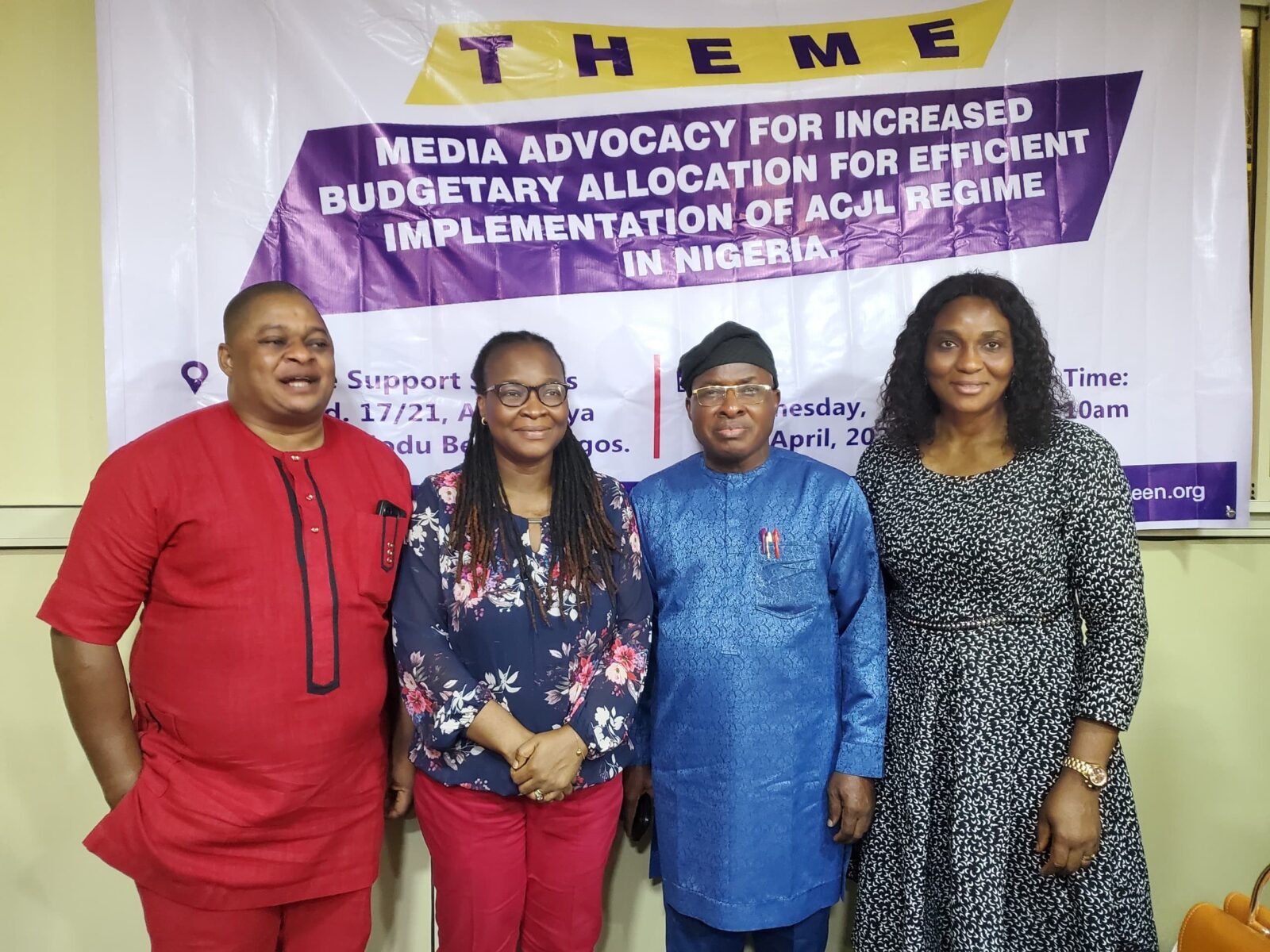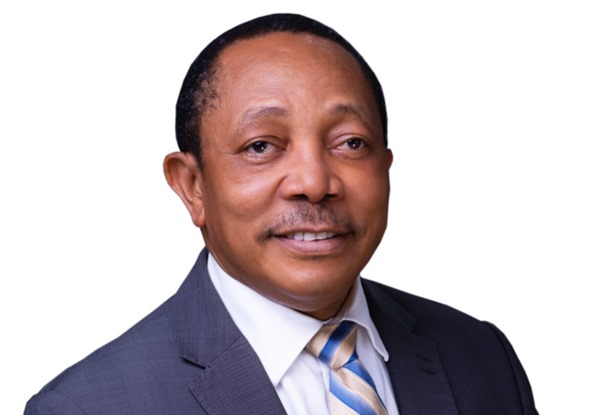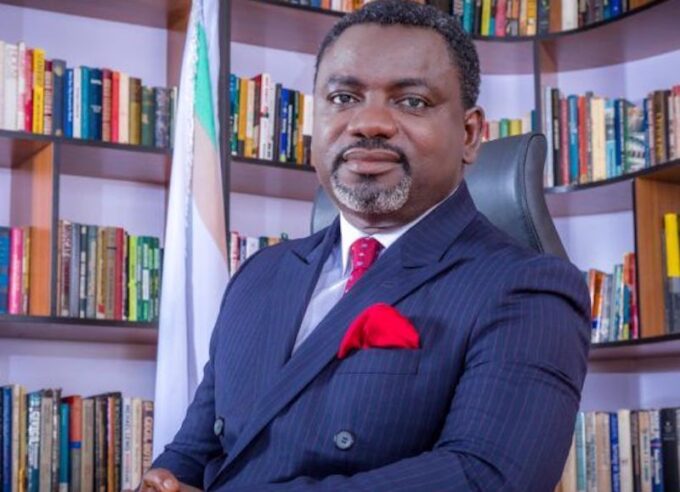CLEEN Foundation, a non-governmental organisation focused on justice and security in Nigeria, recently hosted a pivotal media dialogue that addressed the urgent need for increased budgetary allocations for the Administration of Criminal Justice Law (ACJL). The event, held in Lagos, underscored the critical role that adequate funding plays in ensuring the efficient implementation of this law. As the Nigerian criminal justice system continues to face severe challenges, including delays in legal proceedings, widespread inefficiencies and alarming inadequacies in the current funding model, Chiemelie Ezeobi writes that this dialogue called for a rethinking of how justice is financed in the country because without a strategic and holistic approach to budget allocation that prioritises justice and public safety, the potential of the ACJL to drive meaningful reform will remain unrealised
Financing the administration of criminal justice in Nigeria has long been a government-driven endeavour, with funds allocated through the federal and state budgets. However, Nigeria’s complex approach to criminal justice reform, particularly through the Administration of Criminal Justice Act (ACJA) and its state-level implementations, is riddled with challenges. These include inadequate funding allocations, ineffective resource distribution, and difficulties in managing criminal justice institutions efficiently. Despite the provisions outlined in the Nigerian Constitution and the ACJA, there are significant gaps in translating these provisions into practical, equitable funding for courts, investigations, prosecutions, and adjudication processes.
Challenges with ACJL Implementation
According to Dr. Salaudeen Hashim, the Program Director of CLEEN Foundation, the Administration of Criminal Justice Law (ACJL) framework cannot reach its full potential without adequate financial backing. In a recent media dialogue held at the CLEEN Foundation Conference Room in Lagos, Dr. Hashim spoke passionately about the state of the law, underlining that the 2025 budget must place a stronger emphasis on judicial reform.
“Adequate funding is not just a matter of money, but a matter of efficiency and justice,” he said. “When courts are underfunded and lack the necessary infrastructure, delays in justice become inevitable. This creates a vicious cycle where the backlog grows, and litigants suffer.”
Dr. Hashim further stressed the importance of allocating funds to the ACJMC, the statutory body tasked with overseeing the implementation of ACJA. “For many years, the ACJMC has been underfunded and under-resourced. Without it, the promise of a swift and effective criminal justice system is simply not achievable.”
The Impact of Underfunding on Justice Delivery
Dr. Hashim did not mince words in his critique of the underfunding of the justice system, noting several key issues that hinder the proper functioning of the ACJL. He pointed to the poor response from the Ministry of Justice, the lack of resources within the ACJMC, and the rise of plea bargaining as a tool for settling politically exposed persons (PEPs).
“When there is no adequate budget for the Ministry of Justice, the system becomes vulnerable to manipulation and corruption,” he said. “We have reached a point where justice is often up for sale to the highest bidder. This is an alarming state of affairs, and it must change.”
Dr. Hashim also highlighted the dilapidated custodial centres, which he described as “crime scenes in their own right.” Increasingly, suspects escape police facilities, further undermining the effectiveness of the justice system. With little investment in forensic laboratories and lack of skilled professionals, investigation and prosecution of criminal cases are rendered inefficient.
“The criminal justice system is woefully under-resourced,” Dr. Hashim explained. “We have a deficit in human capacity, such as profilers, and there is also a lack of mental health support for those working within the system. Without addressing these issues, we cannot expect significant improvements.”
The Role of Media in Advocating for Change
As part of the dialogue, Dr. Hashim called on journalists and media practitioners to engage deeply with the subject and report on the inadequate funding and poor implementation of the ACJL.
“Media plays a crucial role in holding the government accountable, especially when it comes to public funds and budget allocations. Journalists must not only report the facts but also delve deeper into the issues of corruption and mismanagement that continue to plague the justice system,” he said.
The media’s role, he argued, is to raise awareness about the reality and potential of the ACJL, track the incoherence in its implementation across various states, and highlight examples of states that have made notable progress, such as Delta State.
“We need to shed light on the states where implementation is strong and where the ACJL is truly making a difference. We must also highlight the negative impacts of underfunding and how it undermines the promise of justice for all.”
Dr. Hashim also pointed to transparency, accountability, and open governance as areas where the media could make a significant impact. He encouraged journalists to investigate the impact of political influence on justice processes and to call out corruption whenever it is detected.
Budgetary Allocations and their Consequences
During the dialogue, Dr. Hashim provided a sobering example from the 2024 budget, which allocated a mere 73 million Naira to the ACJMC, despite the body’s critical role in the implementation of ACJA. In contrast, 971.9 million Naira was earmarked for renovations, and an eye-watering 480 million Naira was allocated for other non-prioritised items.
“How can we justify such disparities in budget allocations?” Dr. Hashim asked. “This is a clear indication that the government is not taking the criminal justice reform agenda seriously. We need a coherent, focused approach to funding that reflects the urgency of the task at hand.”
Critique of State Government Budgeting,
Corruption and Plea Bargaining in the Justice System
Also, CLEEN Foundation has been outspoken in its criticism of the inadequate budgetary allocation for the implementation of the ACJL, urging state governments, in particular, to make intentional efforts to support the justice process. At the media dialogue, Peter Maduoma, acting Executive Director of CLEEN Foundation, called on the media to continue highlighting the critical issues preventing the law’s success.
“The media is essential in pushing for reforms,” Maduoma said. “The ACJA is being implemented by many individuals who lack full understanding of its provisions, which presents a significant challenge for the media to focus on educating the public and ensuring stakeholders are well-informed.”
He also pointed out the flaws in Nigeria’s budgeting practices. “Funds are generally allocated to projects with visible returns—things like bridges and roads—which politicians can easily inaugurate. But vital social changes, like securing lives and ensuring justice, often suffer from poor funding. The unrest in Uromi, Edo State, is a clear example of citizens taking justice into their own hands because they feel the state is not providing the necessary security.”
Maduoma also condemned the practice of plea bargaining, calling it a breeding ground for corruption, extortion, and miscarriages of justice. He argued that plea bargaining is often misused to secure favourable outcomes for powerful individuals, undermining the integrity of the judicial process.
The Case for Systemic Change and Adequate Resourcing
Dr. Hashim, echoing Maduoma’s sentiments, reiterated that adequate funding for the ACJL would expedite judicial processes, reduce backlogs, and prevent unnecessary delays in litigation. He expressed frustration at the reluctance of states to sufficiently resource the implementation of the law, suggesting that funds are often diverted to capital projects that benefit certain individuals, rather than systemic reforms. Hashim also pointed to the absence of Administrative Criminal Justice Monitoring Committees in many states, emphasising that these committees are essential for monitoring the compliance of criminal justice actors.
“Why are funds not being properly allocated to ensure the proper functioning of the criminal justice system?” Hashim asked. “Instead, states often invest in capital projects that benefit certain individuals. Meanwhile, critical components like monitoring committees are either absent or inactive.”
He further noted deficits in infrastructure, with the ACJL requiring modernised interrogation rooms. Yet, according to Hashim, only Katsina State has met this requirement at its police headquarters.
A Call to Action
In conclusion, both Dr. Hashim and Maduoma called for more in-depth reporting, analysis, and collaboration between the media, civil society organisations (CSOs), and justice sector actors to ensure the effective implementation of the ACJL. The media, they stressed, must maintain a central focus on the issues, follow up on projects, and evaluate government performance.
“We must keep the people at the centre of our coverage,” Dr. Hashim emphasised. “It’s essential that we stick to the issues, follow up on projects, evaluate performances, and collaborate with others in the justice sector to ensure that the ACJL achieves its full potential. The future of justice in Nigeria depends on it.”

















Leave a comment